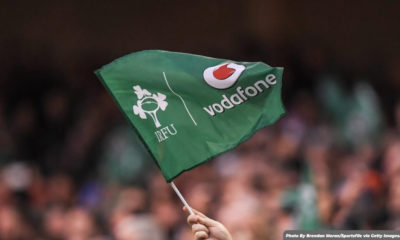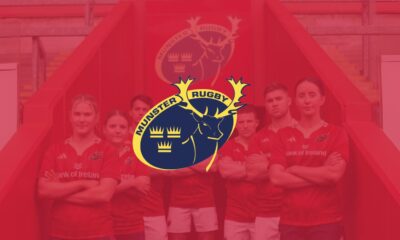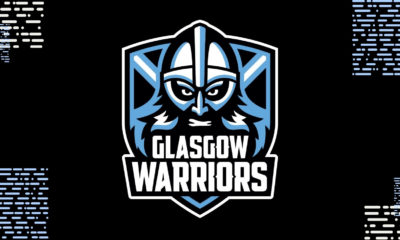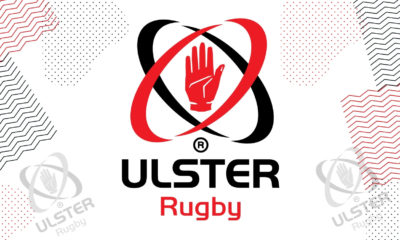Player Social
Will Addison Feeds Ducks
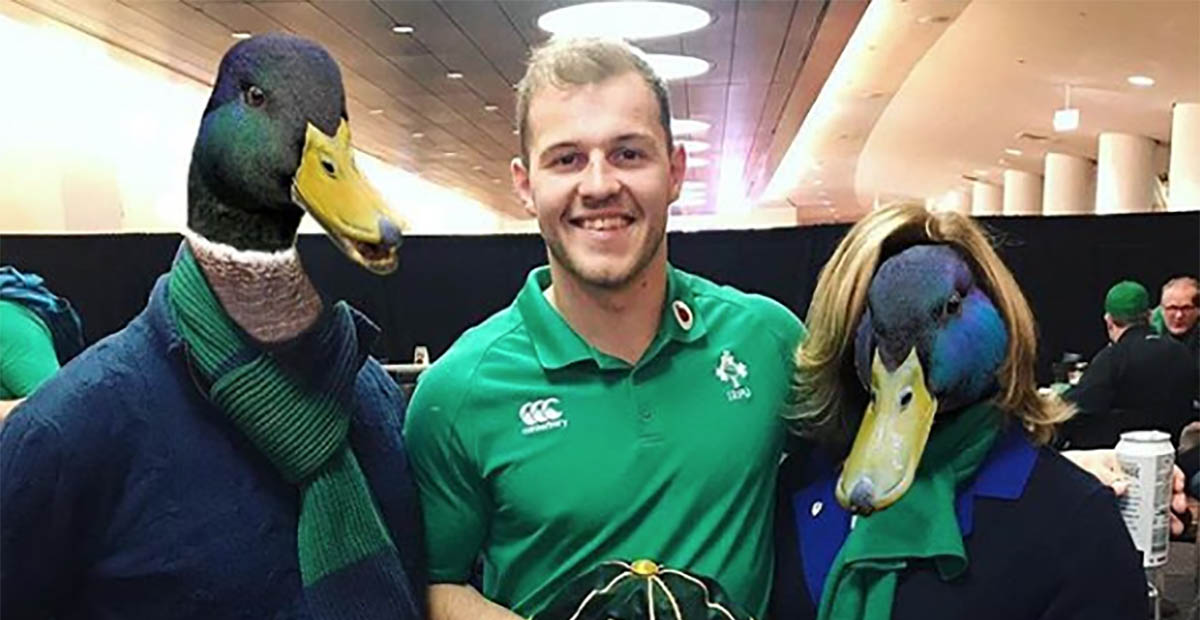
With the evolution of social media, we’ve seen the evolution of parody accounts.
We’ve had ‘Stern Vern Cotter’, ‘Boring Kearney Brothers’, ‘NotGavHenson’ to name a few but the latest phenom is ‘Will Addison Feeds Ducks‘.
The Irish star has been a huge hit since making the move to Ulster this season. His success and enjoyment apparently has not been limited to the pitch but has extended to ponds across Northern Ireland with Will being spotted often with a loaf in hand lobbing bread at hungry ducks.
There
North Down resident, John Todd got in touch with us to say he recently saw Will in Crawfords Burn with a loaf of Tesco Value Medium Slicked White Bread but the North Down Ducks simply turned their beaks up at the offering.
“It was a nice gesture to be fair to the young chap but everyone knows that North Down Ducks are conscious of their carb intake and will only eat ‘Hovis Seed Sensations Wholemeal’. ”
It does seem that Will has got his act together and sorted his ‘one loaf fits all’ philosophy as he was again spotted at a pond close to Ballymena launching chunks of Veda bread to the local mallards.
As well as his ever-improving knowledge of localised duck taste preferences, Will is trying to ‘spread his wings’ from purely being a
One onlooker said that Will (pictured above wearing jeans & black trainer combo #sneans) was a natural teacher, showing great understanding and knowledge of the pond and feeding techniques as well as making John aware of the dangers involved in duck feeding.
“It was clear to see that Will has a passion for the ducks and desire to see others share that but John just didn’t seem to be as receptive”
Cooney doesn’t seem to be the only Ulster star getting in on the duck action. Jacob Stockdale has also been rumoured to tinker in duck nourishment all be it with an unorthodox approach at feeding time.
Full kit, “Duck dive”.
Stockdale could prove to be a bigger diehard for ducks than Will with the Irish star revealing his new ‘ink’.
Rumours have been rife in the flock that Addison is secretly raging that Stockdale has beaten him to the chase as he has been planning a full ‘back piece’ of a geometric duck for several months. Stockdale seems to have taken advantage of the Italian ‘walk-ins only’ tattoo model whilst in Rome on the weekend and jumped ahead of Addison. Reports have said that Addison had already paid a deposit for his geometric duck but is now having second thoughts after Stockdale’s ink and could face losing his deposit should he cancel.
Addison reportedly has been furious with the Irish Kit man after learning that their off-field ‘Down Jacket’ is in fact, duck down. Allegedly speaking out in a recent team meeting about how he morally and ethicaly cannot wear ‘duck down’ and how he now sees his fellow teammates as ducks after seeing them donning ‘duck down apparel’.
If rumours are to be believed, Joe Schmidt backed Addison saying;
“If Will is uncomfortable, we have got to respect his views and passion. I’ve been told there is a ‘goose down’ option available so we will look to move to that jacket cause yo if we continue to support the wearing of duck down, then Will can’t feed ducks and there will be no ‘ Will Addison feeds Ducks’ Instagram account and I simply couldn’t live with myself if I was part of that demise.”
While it’s (hopefully) pretty obvious that the majority of the above is complete and utter nonsense. One thing that is for certain is that this account is a complete quacker.
So whoever is the Mastermind(s), keep up the great work!
Make sure and give the profile a follow to keep up with everything Will Addison and his Duck Feeding antics.
6 Nations
World Rugby to introduce contact training restrictions
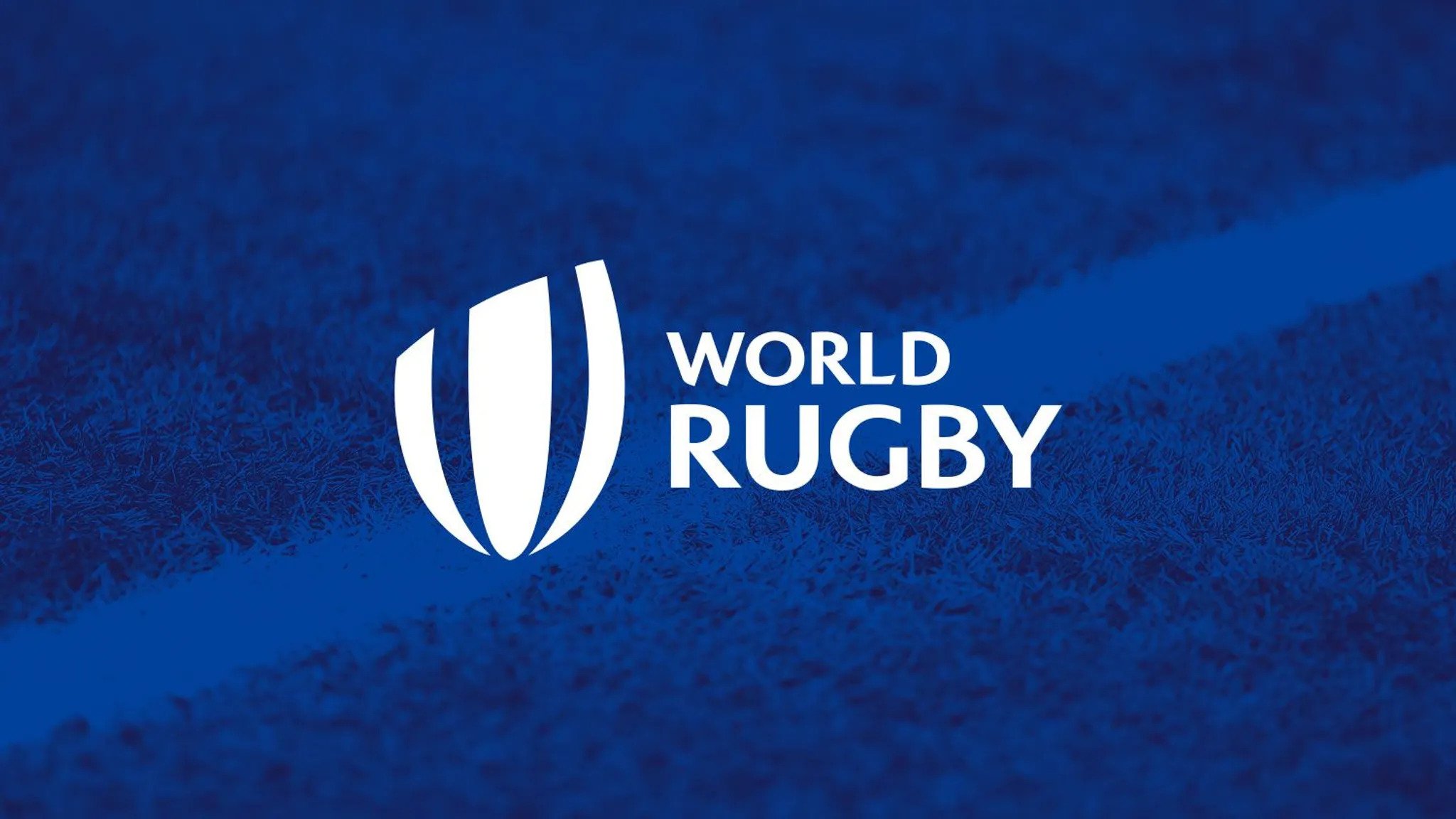
World Rugby and International Rugby Players (IRP) have published new contact training load guidance aimed at reducing injury risk and supporting short and long-term player welfare. The guidance is being supported by national players’ associations, national unions, international and domestic competitions, top coaches and clubs.
Earlier this year, World Rugby unveiled a transformational six-point plan aiming to cement rugby as the most progressive sport on player welfare. These new best-practice guidelines focus on the intensity and frequency of contact training to which professional rugby players should be exposed and have been shaped by consultation with players and coaches as well as leading medical, conditioning and scientific experts.
While the incidence of training injuries is low relative to that of matches, the volume of training performed means that a relatively high proportion (35-40 per cent) of all injuries during a season occur during training, with the majority of these being soft tissue injuries. Since the training environment is highly controllable, the guidelines have been developed to reduce injury risk and cumulative contact load to the lowest possible levels that still allow for adequate player conditioning and technical preparation.
Global study
The guidelines are based on a global study undertaken by IRP of almost 600 players participating across 18 elite men’s and women’s competitions, and a comprehensive review of the latest injury data. This reveals that training patterns vary across competitions, with an average of 21 minutes per week of full contact training and an average total contact load of 118 minutes per week. A more measured and consistent approach to training will help manage the contact load for players, especially those moving between club and national training environments. The research supports minimising contact load in training, in order that players can be prepared to perform but avoid an elevated injury risk at the same time. The guidelines aim to help strike that balance.
New ‘best practice’ training contact guidelines
World Rugby and International Rugby Players’ new framework [https://www.world.rugby/the-game/player-welfare/medical/contact-load] sets out clear and acceptable contact guidelines for training sessions, aiming to further inform coaches – and players – of best practice for reducing injury risk and optimising match preparation in season. The guidance covers the whole spectrum of contact training types, considering volume, intensity, frequency and predictability of contact, as well as the optimal structure of sessions across the typical training week, including crucial recovery and rest periods.
Recommended contact training limits for the professional game are:
- Full contact training: maximum of 15 minutes per week across a maximum of two days per week with Mondays and Fridays comprising zero full contact training to allow for recovery and preparation
- Controlled contact training: maximum of 40 minutes per week
- Live set piece training: maximum of 30 minutes set piece training per week is advised
The guidelines, which also consider reducing the overall load for players of particular age, maturity and injury profile (in line with the risk factors and load guidance published in 2019), will feature in the men’s and women’s Rugby World Cup player welfare standards.
Instrumented mouthguard research programme to inform effectiveness
World Rugby is partnering with elite teams to measure the ‘real life’ effect of these guidelines (in training and matches) and assess the mechanism, incidence and intensity of head impact events using the Prevent Biometics market-leading instrumented mouthguard technology and video analysis to monitor implementation and measure outcomes.
The technology, the same employed in the ground-breaking Otago Rugby Head Impact Detection Study, will deliver the biggest ever comparable bank of head impact data in the sport with more than 1,000 participants across the men’s and women’s elite, community and age-grade levels. The teams that have signed up so far are multiple Champions Cup winners Leinster, French powerhouse Clermont Auvergne and Benetton Treviso while discussions are ongoing with several other men’s and women’s teams across a range of competitions.
World Rugby Chief Executive Alan Gilpin said: “This important body of work reflects our ambition to advance welfare for players at all levels of the game. Designed by experts, these guidelines are based on the largest study of contact training in the sport, developed by some of the best rugby, performance and medical minds in the game. We believe that by moderating overall training load on an individualised basis, including contact in season, it is possible to enhance both injury-prevention and performance outcomes, which is good for players, coaches and fans.”
World Rugby Director of Rugby and High Performance and former Ireland coach Joe Schmidt added: “Training has increasingly played an important role in injury-prevention as well as performance. While there is a lot less full contact training than many people might imagine, it is our hope that having a central set of guidelines will further inform players and coaches of key considerations for any contact that is done during training.
“These new guidelines, developed by leading experts and supported by the game, are by necessity a work in progress and will be monitored and further researched to understand the positive impact on player welfare. We are encouraged by the response that we have received so far.
“We recognise that community level rugby can be an almost entirely different sport in terms of fitness levels, resources and how players can be expected to train, but the guidelines can be applied at many levels, especially the planning, purpose and monitoring of any contact in training.”
International Rugby Players Chief Executive Omar Hassanein said the guidelines are being welcomed by players: “From an International Rugby Players’ perspective, this project represents a significant and very relevant piece of work relating to contact load. We’ve worked closely with our member bodies in gathering approximately 600 responses from across the globe, allowing us to have sufficient data to then be assessed by industry experts. The processing of this data has led to some quite specific recommendations which are designed to protect our players from injuries relating to excessive contact load. We will continue to work with World Rugby as we monitor the progress of these recommendations and undertake further research in this area.”
Leinster coach Stuart Lancaster, who was involved in reviewing the study and advising the development of the guidelines, said: “We have a responsibility to make the game as safe as possible for all our players. For coaches, optimising training plays a significant role in achieving that objective. It is important that we do not overdo contact load across the week in order that players are fresh, injury-free and ready for match days. These guidelines provide a practical and impactful approach to this central area of player preparation and management.”
Ireland international and IRP Head of Strategic Projects and Research Sene Naoupu said: “While this is the first step of the implementation and monitoring process, it is an incredible outcome that shows just how much players care about this area. It also provides a foundation to review and determine future direction of implementation across the game, within an evidence-based injury-prevention programme for performance and welfare.”
World Rugby is also progressing a wide-ranging study of the impact of replacements on injury risk in the sport with the University of Bath in England, a ground-breaking study into the frequency and nature of head impacts in community rugby in partnership with the Otago Rugby Union, University of Otago and New Zealand Rugby, and further research specific to the professional women’s game. All of these priority activities will inform the decisions the sport makes to advance welfare for players at all levels and stages.
Player Social
3 big names return for Ulster
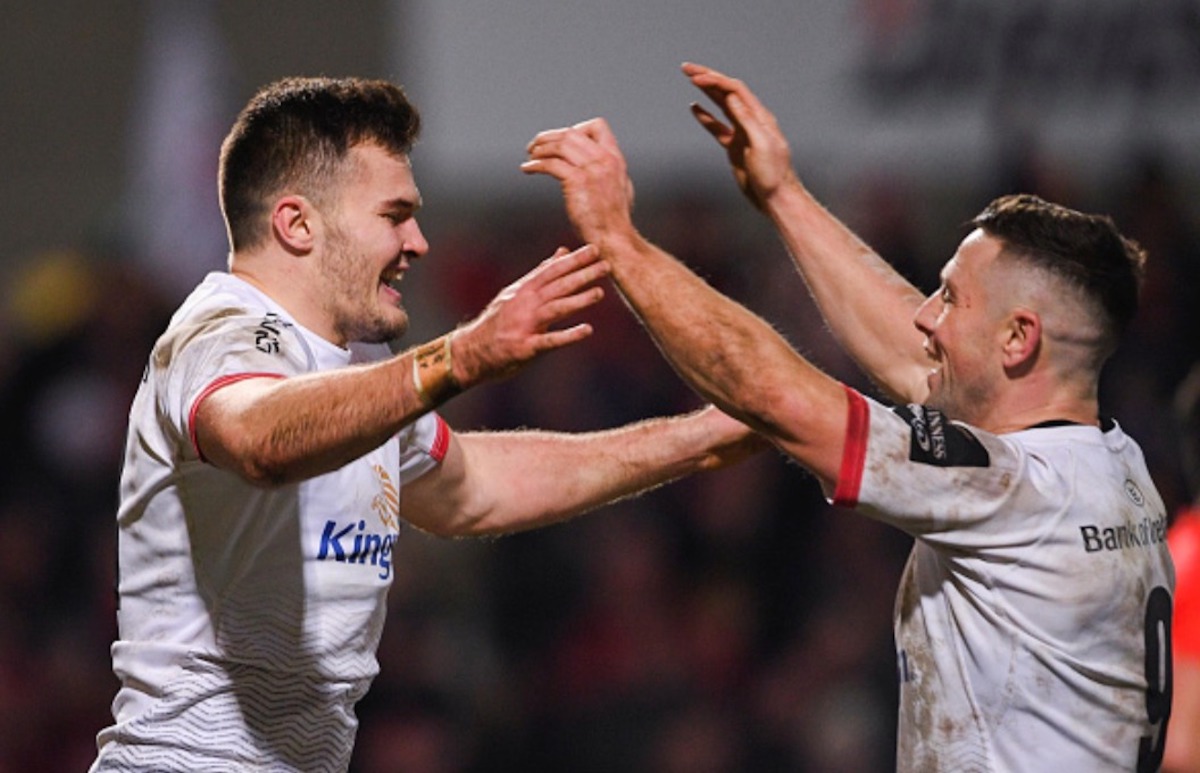
The Ulster coaching team has named the Ulster match-day squad to host Ospreys at Kingspan Stadium on Friday night (8pm kick-off).
Jacob Stockdale has overcome a knee injury to be selected on the left wing with Rob Lyttle making a positional switch to the right wing and last week’s Player of the Match Michael Lowry continuing at full-back . The midfield duo of Stuart McCloskey and James Hume retain their starting berths, as do Ian Madigan and John Cooney at half-back.
In the front row, Andrew Warwick comes in to start at loosehead, with John Andrew at hooker and Marty Moore at tighthead. Kieran Treadwell, who made his 100th Ulster appearance last week, is once again named at second row to partner Alan O’Connor. Jordi Murphy will again skipper the side from the back row, and is joined by Greg Jones at blindside flanker and Nick Timoney at Number Eight.
Winger, Robert Baloucoune could make his first appearance for Ulster this season if called upon from the bench, after making his return from a hamstring injury. He is named alongside Alby Mathewson and Matt Faddes among the back line replacements. Sean Reidy is also making a return from injury and is named in the forward reinforcements with Ross Kane, who could make his 50th appearance for the Province, Adam McBurney, Eric O’Sullivan and last week’s debutant, Cormac Izuchukwu.
Ulster team to play Ospreys, Guinness PRO14 Round 13, Friday 26 February at Kingspan Stadium (kick-off 8pm, live on Premier Sports / eir Sport):
(15-9) Michael Lowry, Rob Lyttle, James Hume, Stuart McCloskey, Jacob Stockdale, Ian Madigan, John Cooney;
(1-8) Andrew Warwick, John Andrew, Marty Moore, Alan O’Connor, Kieran Treadwell, Greg Jones, Jordi Murphy (Capt.), Nick Timoney.
Replacements: Adam McBurney, Eric O’Sullivan, Ross Kane, Cormac Izuchukwu, Sean Reidy, Alby Mathewson, Matt Faddes, Robert Baloucoune.
International
Fans Player of the Decade Confirmed
World Rugby have announced the winner of their Fans Player of the Decade vote and there’s no surprise who’s won
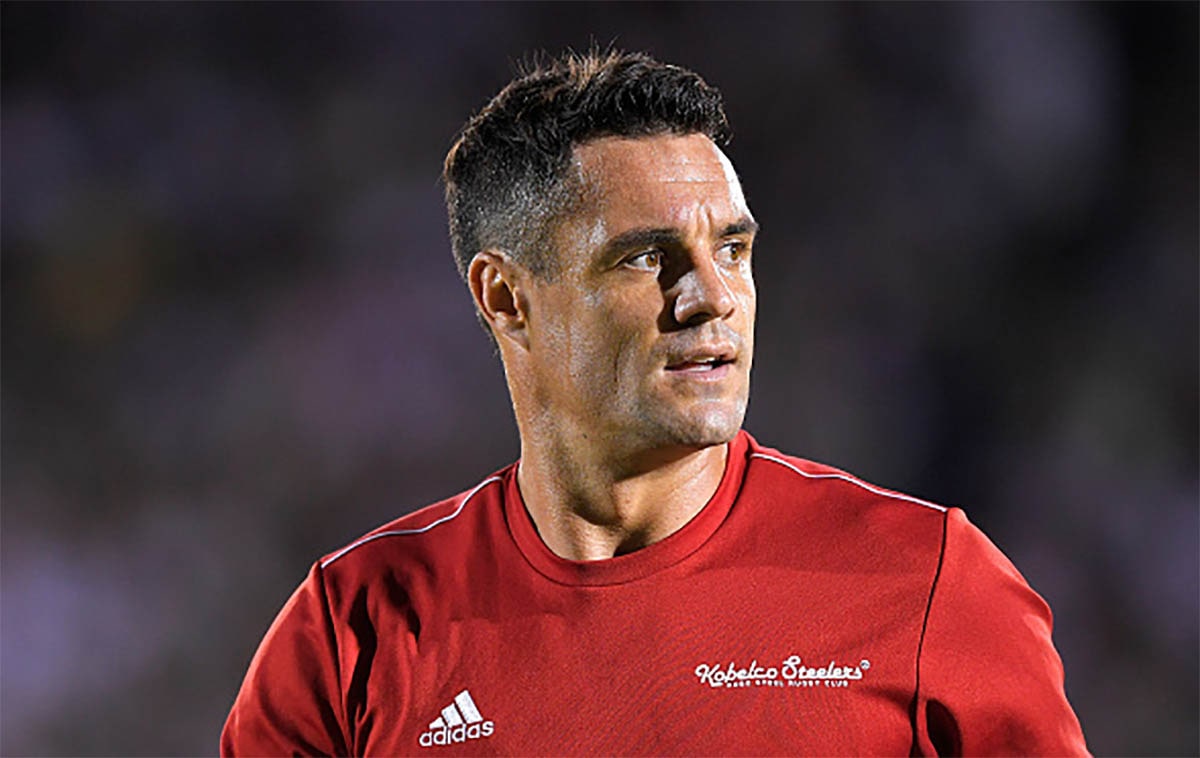
Former All Blacks fly-half Dan Carter has been named World Rugby’s Fans Player of the Decade following their polls over the past couple of weeks.
The organisation narrowed the competition down to 16 players, as they split them into a last-16 style format, with backs on one side and forwards on the other. With two players going head-to-head in the polls to make it through to each respective round.
Last week it was brought down to the final four, with all of them being New Zealand internationals as Carter was pitted up against Beauden Barrett, with Richie McCaw facing Kieran Read.
McCaw and Carter were victorious and now Carter has come out as the overall winner as the best player over the past 10-years.
It is not hard to see why fans have gone for the 112-cap All Black, who finished up his international career in 2015, having guided his country to historic back-to-back Rugby World Cup crowns.
As well as that he holds the title for the most points scored at test-level rugby with an incredible 1598 to his name.
On the international stage he was impressive, but he has been equally so at club-level, winning domestic crowns in both France with Racing 92 and in Japan with the Kobelco Steelers.
The 37-year-old is still under contract with the Japanese outfit, but has been unable to play for them for the majority of the year, having suffered a major injury, which also prevented him from a brief return to Racing 92 for the latter-half of last season.
However, he is poised to return to the playing field shortly and will be hoping to guide his team to further success and will have the aid of another All Black great joining him in the form of Brodie Retallick, who is linking up with the side for the season during his year sabbatical.


